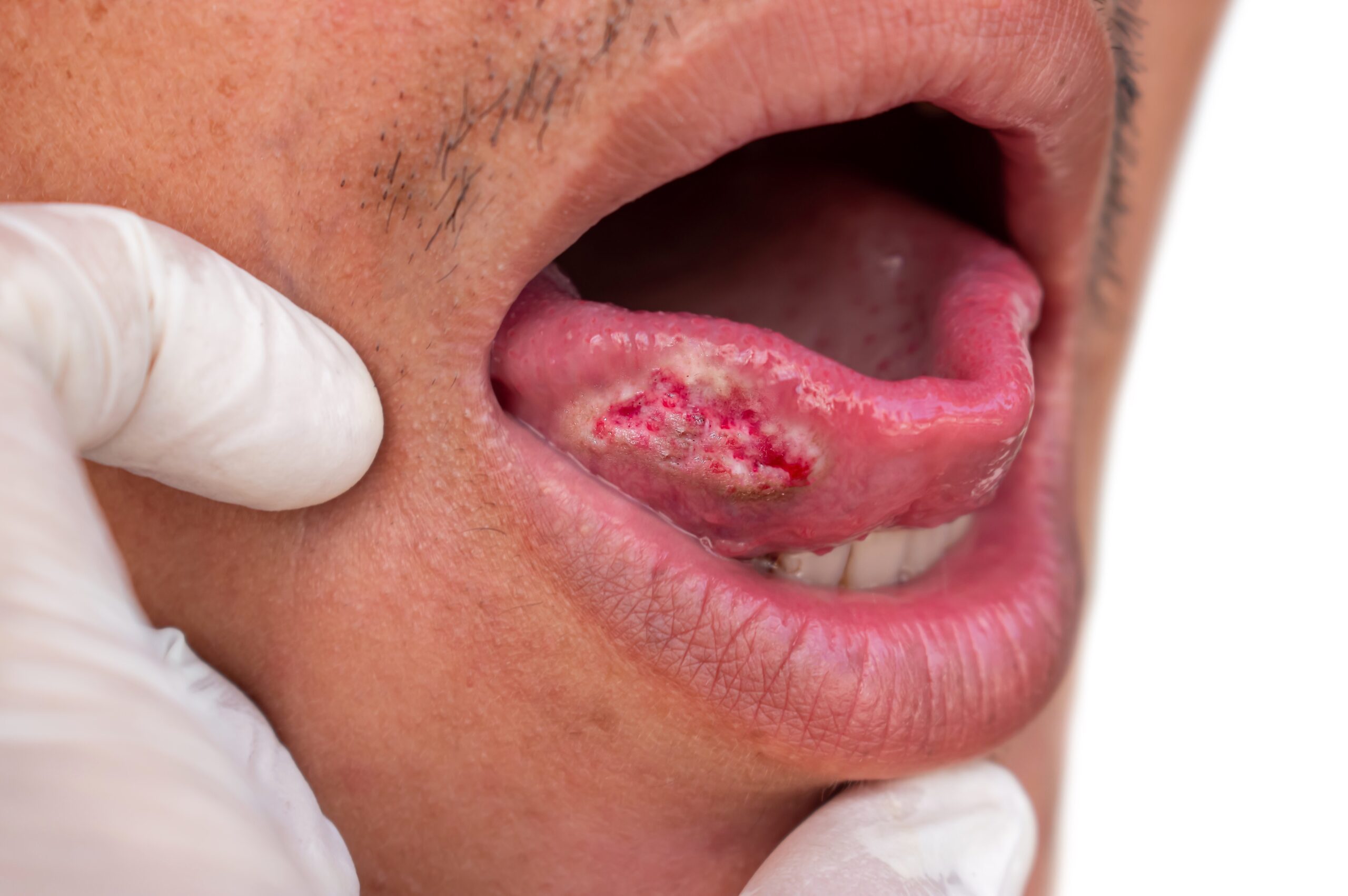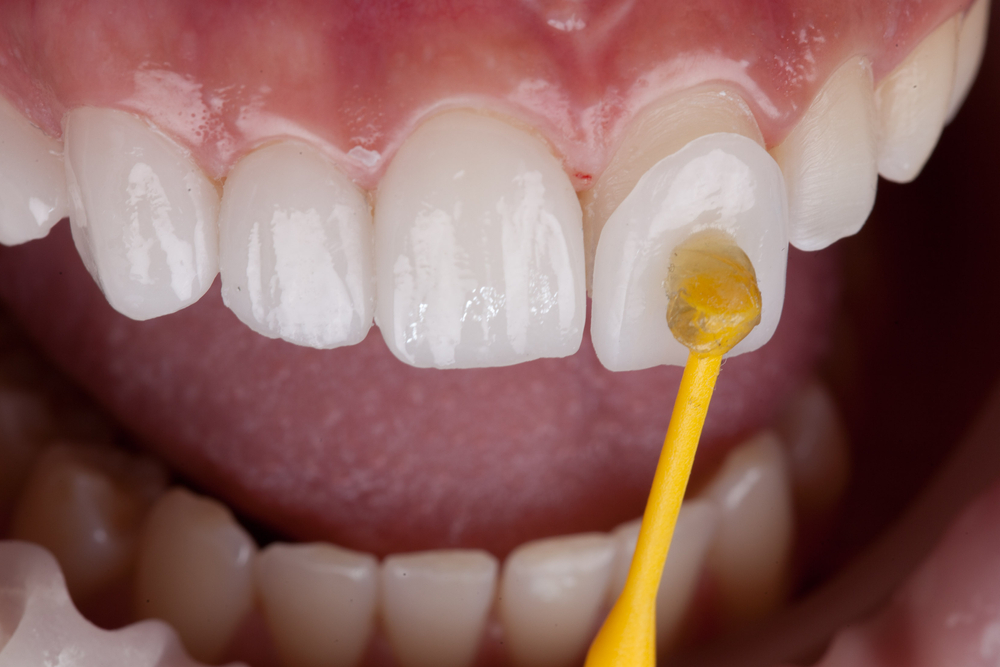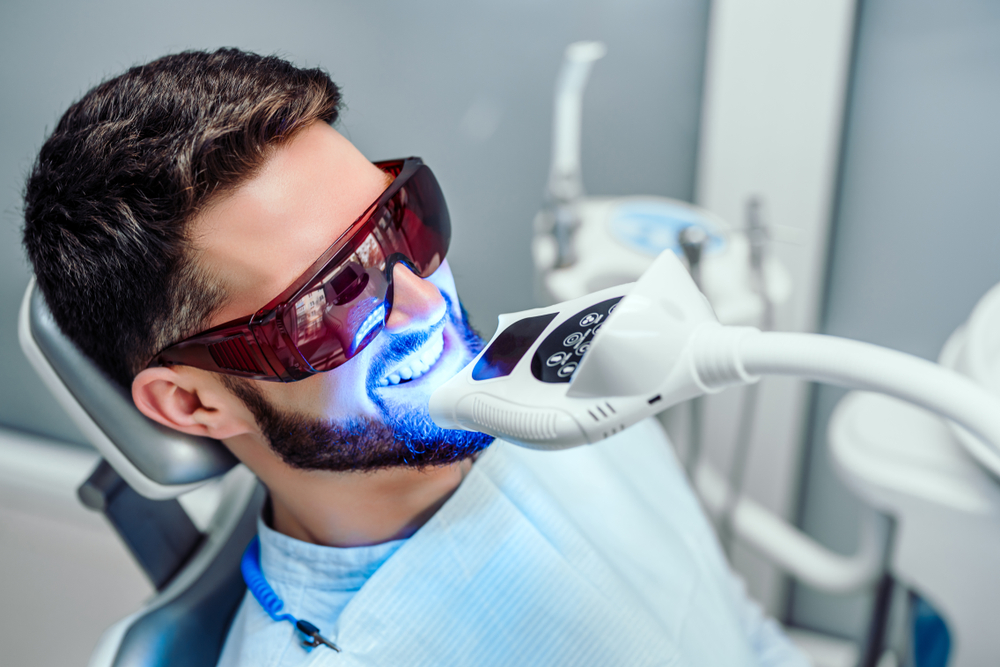Every year, thousands of individuals are diagnosed with oral cancer, a potentially life-threatening condition that, if detected early, has a much higher chance of successful treatment. At Smile Science Dental Spa, located right in the heart of Glendale, AZ, we prioritize your oral health. Dr. Richard Dawson and Dr. John Turke, our dedicated general dentists, have honed their skills and expertise to provide the best in early detection and treatment options. The significance of understanding oral cancer, its symptoms, and preventive measures cannot be stressed enough, and that’s exactly what we’ll explore today.
What is Oral Cancer?
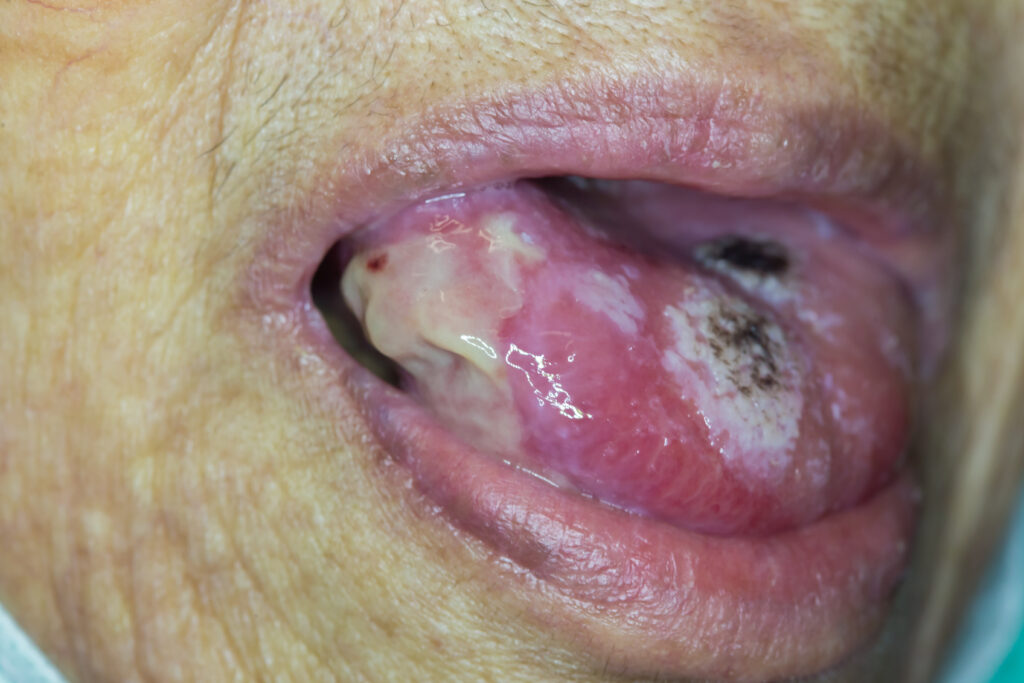
Simply put, oral cancer is a type of cancer that develops in the tissues of the mouth or throat. It belongs to a larger group of cancers known as head and neck cancers. Most often, oral cancer starts in the cells that line the lips and the inside of the mouth, called the squamous cells. It’s essential to note that while it predominantly affects the mouth’s inner lining, it can also occur on the lips, tongue, roof or floor of the mouth, gums, and even the tonsils. Knowing where and how it begins is the first step to ensuring you’re informed and prepared for early detection.
Signs and Symptoms to Look Out For
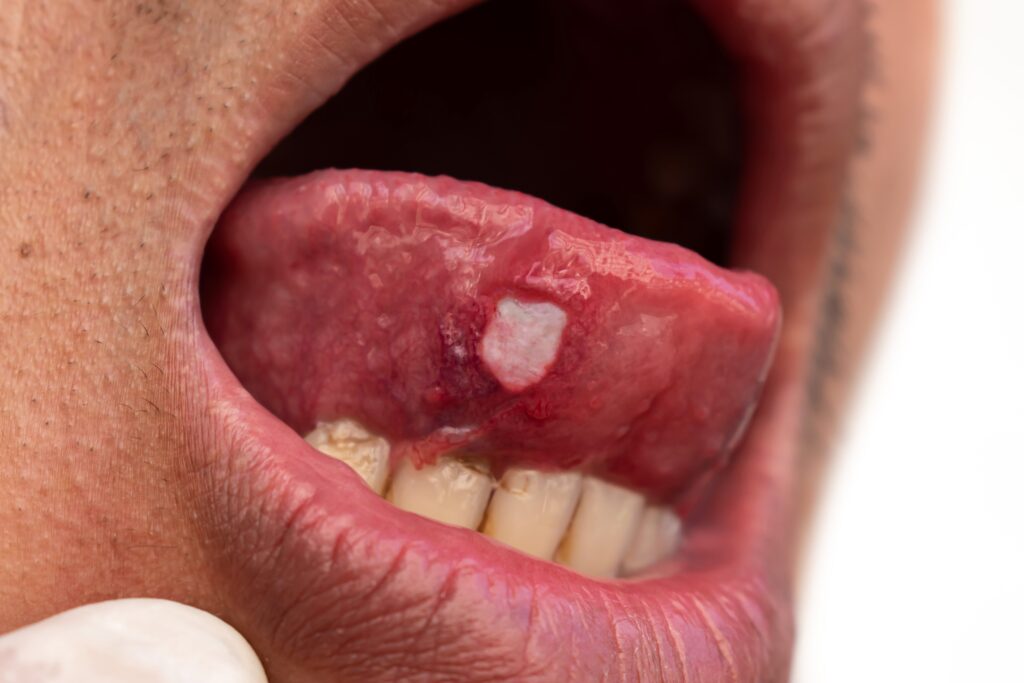
Recognizing the signs of oral cancer is paramount, as early detection can greatly increase the chances of successful treatment. Here’s a breakdown of what to watch for:
Early-stage symptoms:
- White or red patches inside the mouth or on the lips.
- Sensitivity or pain in the mouth, lips, or throat.
- Sores or lumps on the mouth or lips that don’t heal.
- Difficulty or discomfort when swallowing or chewing.
- A feeling that something is stuck in your throat.
Later-stage symptoms:
- Persistent ear pain.
- Dramatic weight loss.
- A lump or mass felt inside the mouth or neck.
- Jaw pain or stiffness.
- Chronic sore throat.
At Smile Science Dental Spa in Glendale, AZ, Dr. Dawson and Dr. Turke emphasize the significance of regular dental check-ups. Not only do these check-ups help maintain your overall dental health, but they also allow for early detection of abnormalities that might indicate oral cancer.
Causes and Risk Factors
Understanding the factors that can increase the risk of oral cancer is key to prevention. Here are the primary culprits:
Common causes:
- Tobacco Use: This is the most significant risk factor for oral cancer. Whether you smoke cigarettes, cigars, or use smokeless tobacco like snuff or chewing tobacco, you’re at an increased risk.
- Heavy Alcohol Consumption: Those who consume alcohol heavily (especially in conjunction with tobacco) have a higher risk. Alcohol acts as a solvent, allowing harmful chemicals in tobacco to penetrate the mouth’s tissues more efficiently.
Other factors that may elevate the risk:
- Prolonged Sun Exposure: Especially exposure to the lips, increasing the risk of lip cancers.
- Human Papillomavirus (HPV): Certain strains of HPV are linked to oral cancer.
- Age: While oral cancer can strike at any age, it’s most commonly diagnosed in people over 40.
- Diet: A diet low in fruits and vegetables might increase the risk of oral cancer.
- Previous Oral Cancers: If you’ve had oral cancer before, you might be more susceptible to developing it again.
The key is to be aware of these factors, make necessary lifestyle changes, and regularly consult with professionals like Dr. Dawson and Dr. Turke at Smile Science Dental Spa. They’ll guide you in taking proactive steps towards oral health and cancer prevention.
Prevention Tips
Preventing oral cancer involves adopting a series of healthy habits and lifestyle changes that not only reduce your risk but also enhance your overall well-being. Here are some effective tips to consider:
- Tobacco Abstinence: The most effective way to prevent oral cancer is to abstain from all forms of tobacco, whether it’s smoking or smokeless varieties.
- Limit Alcohol: If you do consume alcohol, do so in moderation. This is usually defined as one drink a day for women and up to two for men.
- Dietary Choices: Incorporate more fruits and vegetables into your daily diet. They are rich in antioxidants which help combat cancer-causing agents.
- Protect Yourself from the Sun: Use a lip balm with SPF and wear a wide-brimmed hat when outside to reduce the risk of lip cancer.
- Regular Self-examinations: Once a month, use a mirror to inspect your gums, tongue, lips, and the roof and floor of your mouth. Look for any changes or abnormalities.
- HPV Vaccination: Consider getting vaccinated against HPV, which can reduce the risk of certain strains linked to oral cancers.
Amid these preventive steps, it’s vital to emphasize the role of regular dental visits. At Smile Science Dental Spa in Glendale, AZ, our expert team is trained to spot early signs of oral cancer. Dr. Dawson and Dr. Turke are committed to ensuring that every patient receives the utmost care and attention, helping detect and address issues before they escalate.
The Importance of Dental Screenings/Exams
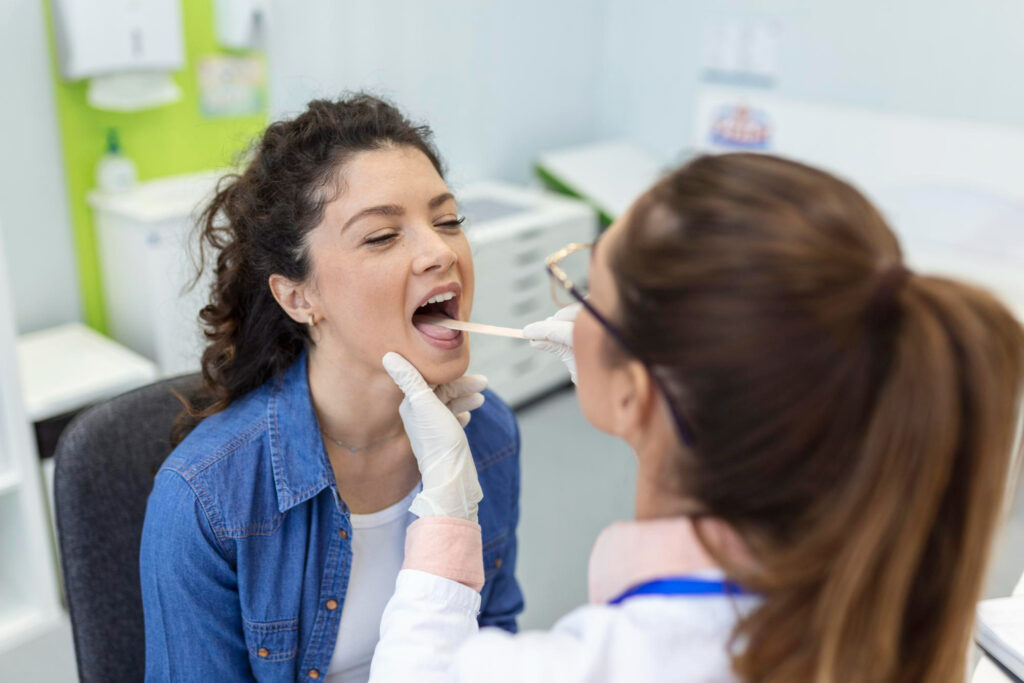
Dental screenings, often referred to as routine dental exams, serve as the first line of defense not just against common dental issues like cavities or gum disease, but also more severe conditions like oral cancer. Their importance cannot be overstated, and here’s why:
- Early Detection: Many dental and oral problems start small. A minor cavity, early-stage gum inflammation, or a tiny spot or lesion could easily go unnoticed without professional examination. Early detection through regular dental screenings allows for simpler, more effective treatments and better outcomes.
- Prevention: Dental exams aren’t just about finding existing problems; they’re also about preventing future ones. Cleanings that often accompany exams remove plaque and tartar, which can lead to cavities and gum disease if left unchecked.
- Comprehensive Assessment: Dental exams often involve X-rays, which can reveal issues not visible to the naked eye, such as impacted teeth, abscesses, tumors, or decay between the teeth.
- Oral Cancer Screening: As discussed, early detection of oral cancer drastically improves treatment success rates. Regular dental exams include a thorough screening for any signs of oral cancer, ensuring that potential problems are caught in their nascent stages.
- Maintaining Overall Health: Numerous studies have linked oral health to overall health. Conditions like heart disease, diabetes, and certain types of infections have been associated with oral health issues. Regular dental exams can help identify these broader health risks.
- Cost Savings: By catching and addressing dental concerns early, patients often avoid the need for more extensive and expensive treatments down the line.
- Education and Guidance: Regular exams provide an opportunity for dentists to educate patients on the best oral care practices tailored to their specific needs. Whether it’s advice on brushing techniques, flossing, or dietary choices, these personalized tips can make a big difference.
- Confidence and Peace of Mind: There’s an intangible value in knowing you’re taking the best possible care of your oral health. Regular screenings offer reassurance and contribute to a confident, healthy smile.
In summary, while it might be tempting to skip a routine dental exam, especially when things feel fine, it’s essential to remember the multifaceted role these screenings play. They are a cornerstone of not just oral health, but overall health and well-being. At Smile Science Dental Spa in Glendale, AZ, we emphasize the significance of these exams and are dedicated to providing comprehensive, top-notch care at every check-up.
Diagnosis and Treatment

The diagnosis and treatment process for oral cancer at Smile Science Dental Spa is thorough, ensuring that patients get the most accurate assessment and effective solutions.
Diagnosis:
- Oral Exam: Dr. Dawson and Dr. Turke first conduct a comprehensive oral exam, looking for any abnormalities or signs of cancer.
- Biopsy: If any suspicious areas are found, a sample of tissue might be taken for laboratory testing to determine if it’s cancerous.
- Imaging Tests: To get a detailed view of your oral cavity, imaging tests like X-rays, MRI scans, or CT scans might be used.
Treatment:
- Surgery: Depending on the stage and location of the cancer, surgical removal of the tumor or affected area might be advised.
- Radiation Therapy: This uses high-energy beams (like X-rays) to target and kill cancer cells.
- Chemotherapy: This drug treatment kills cancer cells throughout the body.
- Targeted Drug Therapy: This treatment targets specific aspects of cancer cells that fuel their growth.
- Reconstructive Surgery: After removal of the tumor, some patients might need surgery to rebuild the structure of their mouth for functional and aesthetic purposes.
The journey through diagnosis to treatment can be daunting, but with the compassionate and skilled team at Smile Science Dental Spa in Glendale, AZ, patients are assured of receiving the best care possible. We are dedicated to guiding and supporting you every step of the way.
Recovery and Aftercare
Recovering from oral cancer, both physically and emotionally, is a journey. Each patient’s path to recovery is unique, but there are common steps and processes to navigate through:
- Follow-up Appointments: Regular visits post-treatment help monitor for any signs of cancer recurrence. They also aid in managing any side effects of treatment.
- Physical Therapy: Some patients might need therapy to regain strength in the jaw, improve speech, or relearn swallowing techniques after surgery or other treatments.
- Dental Care: Dental health is paramount post-treatment. Regular dental check-ups prevent complications and ensure overall oral health.
- Emotional Support: Battling cancer can be mentally taxing. Consider joining a support group, undergoing therapy, or simply leaning on friends and family during recovery.
At Smile Science Dental Spa, we’re more than just a dental facility. We pride ourselves on being a pillar of support for our patients during their recovery phase. Dr. Dawson, Dr. Turke, and our entire staff are dedicated to providing continued care, tailored advice, and a comforting environment that eases the recovery process. We understand the nuances of recovering from oral cancer and are here to provide guidance every step of the way.
Conclusion
Oral cancer, like many other conditions, underscores the absolute importance of early detection. The earlier the diagnosis, the higher the chances of successful treatment and recovery. A large part of this proactive approach rests in the hands of individuals: self-checks, maintaining a healthy lifestyle, and being aware of the signs and symptoms. But it also hinges on regular professional dental check-ups.
At Smile Science Dental Spa in Glendale, AZ, we cannot stress enough the significance of these regular visits. With the expertise of Dr. Dawson and Dr. Turke, we’re equipped to provide top-tier care, from preventive measures to post-treatment recovery.
Your oral health is a vital component of your overall well-being. Don’t leave things to chance. Schedule your next check-up at Smile Science Dental Spa, where your health and peace of mind are our top priorities.
Further Reading
- Oral Cancer
- Mouth cancer
- Oral Cancer: Risks, Symptoms, and Prevention
- New Insights into Oral Cancer—Risk Factors and Prevention: A Review of Literature
- Oral Mucosa Cancer


